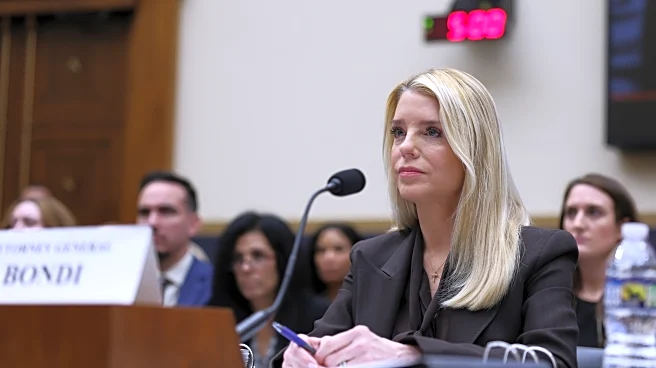Rapid Read • 8 min read
Recent reports highlight Israel's unprecedented humanitarian efforts in Gaza, where it is providing direct aid to the population despite ongoing hostilities. According to John Spencer, chair of urban warfare studies at West Point’s Modern War Institute, Israel's actions are historically unparalleled, as no military has ever provided such aid to an enemy population during active conflict. Israel has delivered over 1.8 million meals through the Gaza Humanitarian Foundation, a U.S.-supported NGO established to replace the UNWRA. Despite these efforts, Hamas continues to resist surrender, leveraging the suffering of Gazans to garner international pressure against Israel. The United Nations reports significant interception of aid by armed actors, with Hamas allegedly reselling supplies on the black market to fund its operations.
AD
The situation in Gaza underscores the complex dynamics of humanitarian aid in conflict zones. Israel's efforts to provide aid while under attack challenge traditional military strategies and highlight the humanitarian crisis faced by civilians. The interception and resale of aid by Hamas not only exacerbate the suffering but also fuel ongoing conflict, impacting regional stability. The refusal of neighboring countries to accept Gazan refugees further complicates relief efforts, leaving civilians trapped in a war zone. This situation raises questions about international responsibility and the effectiveness of humanitarian interventions in politically charged environments.
The ongoing conflict and humanitarian crisis in Gaza are likely to continue drawing international attention and pressure. Stakeholders, including international organizations and governments, may need to reassess their strategies to ensure aid reaches those in need. The role of neighboring countries in providing refuge and the potential for diplomatic interventions to address the blockade and aid distribution are critical areas for future action. The international community's response to Hamas's tactics and the broader implications for peace negotiations in the region remain uncertain.
The ethical implications of providing aid in conflict zones where it may be misappropriated by hostile entities pose significant challenges. The situation in Gaza highlights the need for innovative solutions to ensure aid reaches civilians without empowering aggressors. The broader geopolitical ramifications, including the recognition of a 'State of Palestine' by several countries, reflect the complex interplay of humanitarian concerns and political agendas. Long-term shifts in international policy regarding conflict resolution and humanitarian aid distribution may be influenced by the outcomes in Gaza.
AD
More Stories You Might Enjoy












